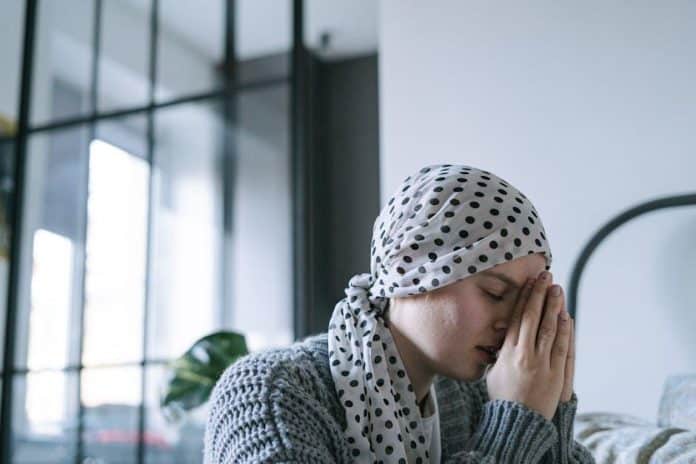Step right up, ladies and gentlemen, as we embark on a journey to separate fact from fiction in the mystical world of red light therapy! Get ready to uncover the secrets, dispel the myths, and shed some light on the truth behind this glowing trend. So grab your sunglasses and hold on tight, because we’re about to shine a spotlight on the real facts behind red light therapy.
science-behind-red-light-therapy”>Understanding the Science Behind Red Light Therapy
Red light therapy is like the superhero of the skincare world – it may not wear a cape, but it definitely has powers that can save your skin! The science behind red light therapy is a fascinating one, and understanding how it works can make you appreciate this treatment even more.
**Here’s a breakdown of the nitty-gritty details behind red light therapy:**
- **Wavelengths:** The magic happens in the wavelengths of red light, typically between 630-700 nm. These wavelengths penetrate the skin to stimulate cellular activity, collagen production, and blood flow. It’s like an energizing pep talk for your skin cells!
– **Mitochondria Activation:** Red light therapy targets the mitochondria in your cells, which are basically the powerhouses responsible for producing energy. By stimulating these little energy factories, red light therapy helps your skin repair and regenerate faster.
– **Inflammation Reduction:** Red light therapy is like the calming friend in your skincare routine. It helps reduce inflammation and promote healing, making it a great option for those dealing with acne, rosacea, or other skin conditions.
So, the next time you bask in the red glow of a red light therapy session, remember that it’s not just a pretty color - it’s science at work, making your skin look and feel its best!
misconceptions“>Debunking Common Myths and Misconceptions
Let’s talk about some myths and misconceptions that are floating around out there. It’s time to set the record straight!
First up, the idea that you can cure a cold by overdosing on vitamin C. Sorry folks, but no amount of orange juice is going to magically make your sniffles disappear. While vitamin C can certainly help boost your immune system, it won’t cure a cold on its own. So go ahead and enjoy that citrusy goodness, but don’t expect it to work miracles.
Next, let’s tackle the myth that shaving makes your hair grow back thicker. Nope, sorry to burst your bubble, but that’s just not true. Shaving simply gives the illusion of thicker hair because it cuts the hair at its thickest point. The hair grows back the same thickness as before, so feel free to keep on shaving without fear of becoming a werewolf overnight.
And finally, the misconception that you need to drink eight glasses of water a day to stay hydrated. While staying hydrated is important, the “eight glasses a day” rule is actually a bit of a myth. Your water intake needs can vary depending on factors like activity level, climate, and overall health. So drink up when you’re thirsty, but don’t stress about reaching that magical number.

Exploring the Health Benefits of Red Light Therapy
So you’ve heard about red light therapy, but are still skeptical about its health benefits? Well, let me shed some light on the subject for you! (Pun intended).
First and foremost, red light therapy has been shown to improve skin health. Say goodbye to pesky wrinkles and acne. This therapy helps stimulate collagen production, giving you that youthful glow you’ve been missing. Who needs expensive skincare products when you’ve got a little red light magic?
Not only does red light therapy work wonders for your skin, but it also helps with muscle recovery. That means you can finally hit the gym without feeling like you’ve been hit by a bus the next day. Say goodbye to those dreaded muscle aches and pains. Thank you, red light therapy!
And let’s not forget about the mood-boosting benefits of red light therapy. Feeling a little blue? Just bask in the warm glow of that red light and watch your mood lift. It’s like a mini vacation for your mind. Who knew a little light could make such a big difference?

Examining the Different Types of Red Light Therapy Devices
So you’ve heard about red light therapy and you’re ready to dive in, but wait – there are so many different types of devices out there! Don’t worry, we’re here to break it down for you in the most entertaining way possible.
First up, we have the handheld devices. These bad boys are perfect for targeted treatment on specific areas of the body. Want to zap away those pesky acne spots? Easy. Need some quick pain relief on your sore muscles? Done. Plus, they’re portable so you can take them anywhere – say goodbye to bad skin days and hello to glowing selfies!
Next on the list are the light panels. These babies are like having your own personal light show right in your living room. Just set it up, sit back, and relax as the red light works its magic on your skin and muscles. It’s the perfect excuse to throw a mini dance party while you rejuvenate your body – disco balls not included.
And finally, we have the full-body systems. If you’re the type of person who wants to go big or go home, these are for you. Wrap yourself up in a cozy blanket, turn on the red light, and let it envelop you in a warm, comforting embrace. It’s like getting a hug from the sun without any of the harmful UV rays. Plus, it’s the perfect excuse to lay back and binge-watch your favorite show guilt-free – who knew self-care could be so entertaining?

Evaluating the Safety and Efficacy of Red Light Therapy
Red light therapy, a treatment that involves exposing the skin to red light wavelengths to promote healing and reduce inflammation, has been gaining popularity in recent years. But just how safe and effective is this seemingly magical therapy? Let’s dive into the details and separate fact from fiction.
First off, when it comes to safety, rest assured that red light therapy is generally considered very safe. The light used in these treatments is non-invasive and doesn’t contain harmful UV rays, so you won’t end up looking like a lobster after a session. However, it’s always a good idea to wear protective goggles to shield your peepers from the bright light – after all, you don’t want to accidentally blind yourself while trying to heal that pesky acne.
When it comes to efficacy, the results of red light therapy can vary depending on the individual and the condition being treated. Some studies have shown that red light therapy can help improve skin tone, reduce wrinkles, and even alleviate pain. However, it’s important to manage your expectations – no amount of red light can magically turn you into a supermodel overnight (sorry, folks).
Overall, red light therapy can be a safe and effective option for those looking to improve their skin or reduce pain. Just remember, patience is key – Rome wasn’t built in a day, and neither is flawless skin or pain relief. So, slap on those protective goggles, bask in the red light glory, and let the healing begin!
Clarifying How Red Light Therapy Works on a Cellular Level
Let’s dive deep into the magical world of red light therapy and how it works its wonders on a cellular level. Picture this: tiny cells in your body throwing a rave party when exposed to red light. How does this happen, you ask? Let me break it down for you in a way that even your grandmother’s pet goldfish can understand.
First off, red light therapy stimulates the mitochondria in your cells. What’s a mitochondria, you might ask? It’s like the power plant of your cells, responsible for producing all that good energy your body needs to function properly. When red light hits the mitochondria, it’s like giving them a shot of espresso, making them work harder and more efficiently. Go, mitochondria, go!
Not only does red light therapy rev up your mitochondrial engines, but it also increases blood flow and circulation. Think of it as opening up those tiny blood vessels to allow more oxygen and nutrients to reach your cells. It’s like giving your cells a first-class ticket to a luxury spa, where they can relax and rejuvenate. Ah, the good life!
And if all that wasn’t enough, red light therapy also reduces inflammation in your cells. It’s like soothing a cranky toddler after a long day at Disneyland - calming the redness, swelling, and pain. Say goodbye to those pesky aches and pains, and hello to a happier, healthier you. So, there you have it, folks. Red light therapy is like a superhero for your cells, swooping in to save the day and make everything right in the world of cellular biology. Who knew light could be so powerful?
FAQs
What exactly is red light therapy?
Think of it as a spa day for your cells! Red light therapy uses low levels of red or near-infrared light to promote healing and reduce inflammation in the body. It’s like giving your cells a little pep talk to help them do their job better.
Is red light therapy just a fad?
Absolutely not! While it may seem like the latest craze, red light therapy has actually been around for decades and has a solid foundation of scientific research supporting its benefits. It’s not just a passing trend – it’s here to stay!
Can red light therapy really help with skin problems?
Yes, it can! Red light therapy has been shown to improve the appearance of wrinkles, acne, and sunspots by stimulating collagen production and increasing circulation. It’s like having your own personal skincare superhero!
Are there any side effects of red light therapy?
While red light therapy is generally considered safe, some people may experience minor side effects like mild eye strain or headaches. However, these side effects are rare and usually mild. It’s like getting a little sun without the sunburn!
How often do I need to do red light therapy to see results?
Consistency is key! Most experts recommend doing red light therapy sessions 3-5 times a week for best results. It’s like going to the gym for your cells – they need regular workouts to stay in top shape!
—
In Conclusion: Shedding Light on the Truth
And there you have it, folks! We’ve peeled back the layers of mystery surrounding red light therapy to reveal the facts hiding beneath. Remember, just because something sounds too good to be true, doesn’t mean it is. So next time you hear a wild claim about red light therapy, shine a little light of skepticism on it and separate fact from fiction. Happy illuminating!

